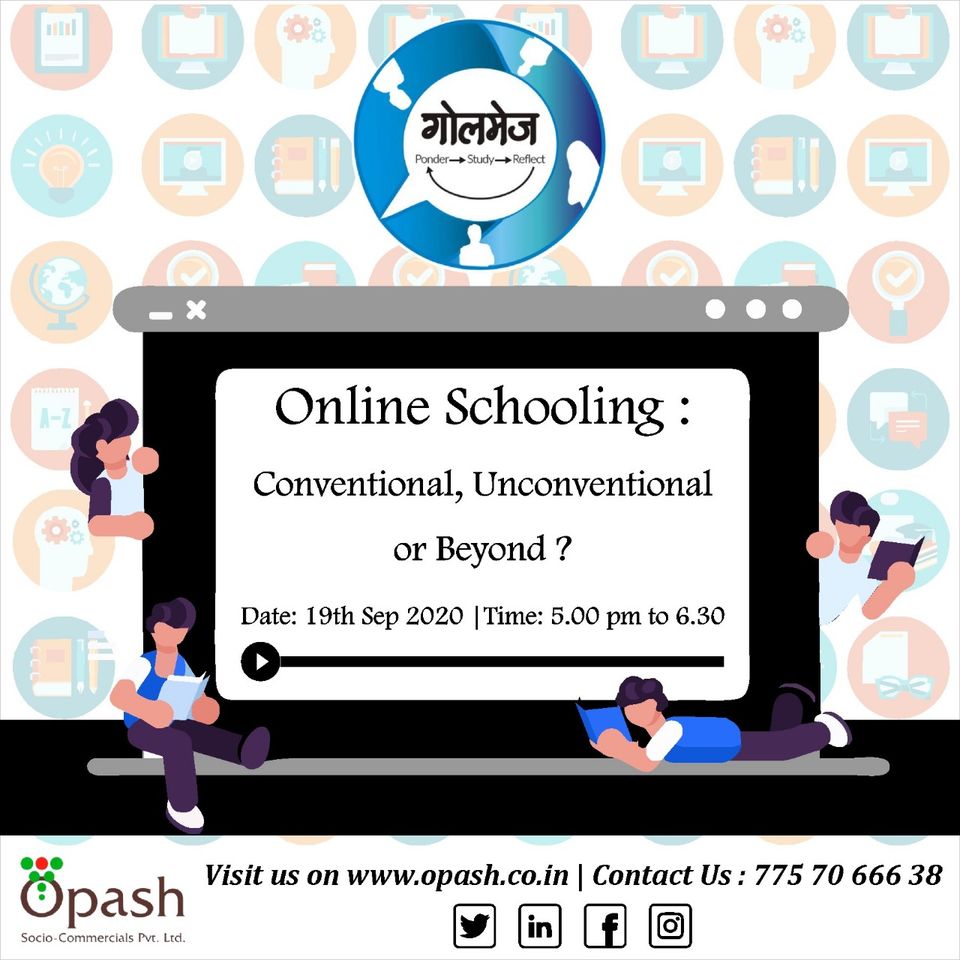 While the floods of misinformation and disinformation have been ravaging the vulnerable streets of our minds, Golmej came to show that the best town planners are we ourselves. So why not come together to discuss, debate and exchange ideas, identifying the wastes of fake news and propaganda and evolve a cleaning mechanism before they work with their friend, rigidity, to clog our exchanges and minds?
While the floods of misinformation and disinformation have been ravaging the vulnerable streets of our minds, Golmej came to show that the best town planners are we ourselves. So why not come together to discuss, debate and exchange ideas, identifying the wastes of fake news and propaganda and evolve a cleaning mechanism before they work with their friend, rigidity, to clog our exchanges and minds?
When the utility of discontent in motivating amelioration is realized, one starts towards change. When such a path addresses the collective discontent of people, one finds organic associations and support. Project Golmej found such a plinth in like-minded persons in building this platform for open-minded discussions on current affairs where the urge to learn holds hands with the urge to express as you sit at the discussion table that is capable of making seating for all views and perspectives, comfortable for the reason that it is a platform that belongs to you and me.
Golmej episode 1
So came our presenter and participants along to discuss whether India was in a position to hit China’s wallet in the first Golmej in August 2020, at a time when a wave of anti-China sentiment was created in India, owing to a border conflict resulting in Indian soldiers’ martyrdom. Statistics were presented to show India’s dependance on China across sectors and views were expressed by participants where they agreed India needed to believe in and build its economic power and manufacturing potential in order to be able to reduce the dependence on China to secure its national interest.
Watch The Episode at:
https://www.facebook.com/105849137874757/videos/3560892557278884
A pandemic and education
This is all happening while the world tackles the Wuhan virus pandemic and its repercussions that literally all spheres of our life have had to face. For a nation’s growth and development and for consistent support to its pillars as the citizens build and sustain, it is considered essential that our children have access to all the facilities and resources that enable their education, knowledge and skill development. Whenever welfare goals find themselves in deliberation, quality education kickstarts the talk. In the list of the most important rights of children, comes the right to education. The question arises: what happens to school education when the country goes into a lockdown owing to a pandemic?
Schools go online
Even as India grappled to prepare itself to deal with the virus, the realization began to dawn on schools that the only path to keep going on was to be built on connectivity, devices and bandwidth. Schools went online and classrooms virtual, bringing to the fore questions by the tens. Were we prepared? Were students’ rights protected? Does it serve education well? How long is this to be the normal? How do we look at this system? Only one thing could help us answer these questions and look at a clearer picture. A Golmej discussion.
Golmej episode 2
“Online Schooling: Conventional, Unconventional or Beyond?” was presented by Mr. Ashish for the September month Golmej where he talked about how the syllabi and available resources remain conventional even as the pandemic, economic conditions and home learning have brought in unconventional scenes.
2019 data was quoted that showed a challenging picture facing the online education regime,
-with internet penetration in urban areas alone being at 51% with significant gender divides in accessibility.
-lack of adequate infrastructure, devices and skills among teachers.
Participants put their perspectives including how online education may not be here to stay given that a pandemic forced schools to go online. Certain long-term and short-term solutions to help better the situation of deprivation of certain sections were suggested where the panelists discussed usage of second-hand devices, pooling and streamlining of resources, blended learning and pre-class mentoring of small groups of students.
The discussion saw the participants inclining in different ways on the point of focusing on the problems of the poorest class as the topmost priority and on the perspective in respect of ease, speed and feasibility of employment of the suggested solutions.
Participants backed each other’s views on the necessity of working out short-term solutions to ensure greatest access to online schools and of safety protocols.
The Facebook page of Golmej, meanwhile, saw great activity with viewers sending in their questions and comments that elicited insightful responses from the panelists on the points of the midday meal scheme, ed-tech companies’ business in the schooling sector and the government spending on the education sector. This Golmej helped everyone learn through a productive discussion on a topic affecting nearly all of us one way or the other.
Even as we rejoice about a successfully insightful discussion in September, we are forced
to think on what we are witnessing happening all over media.
Watch The Episode at:
https://www.facebook.com/105849137874757/videos/2729517694032280


